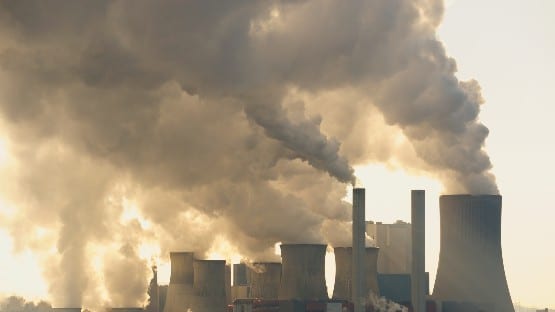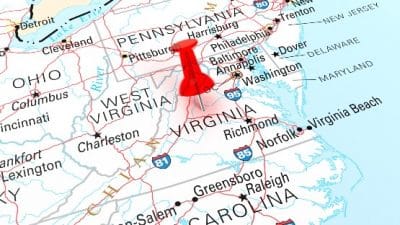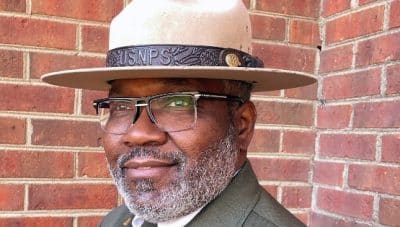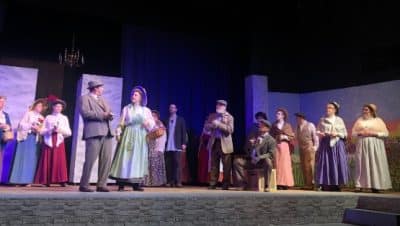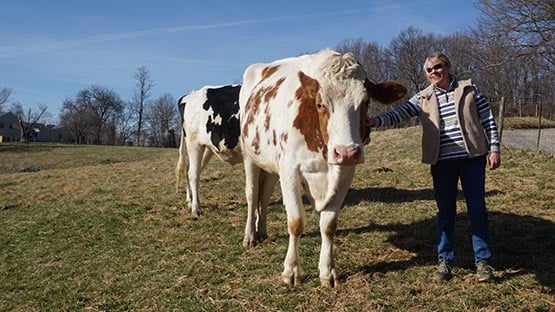
Virginia’s Land Preservation Tax Credit has led to the permanent protection of more than 1 million acres of land in Virginia, Senator Emmett W. Hanger, Jr. (R-Augusta County) announced in Harrisonburg at the Virginia Land and Greenways conference Wednesday.
More than five times larger than the Shenandoah National Park, the land protected through this program benefits Virginians by providing clean air and safe drinking water, increasing access to nature and supporting job-creating industries such as agriculture and forestry.
The resulting land protection is critical to meeting an array of public policy objectives ranging from farmland protection and climate resilience to meeting the goals of the Chesapeake Bay restoration effort.
“The land preservation tax credit was a joint effort coming out of the Commission on the Future of Virginia’s Environment,” Hanger said Wednesday. “None of us imagined that it would be as big as it would be.”
U.S. Sen. Tim Kaine (D-VA) said the permanent protections is an exciting milestone.
“I’m proud that we succeeded in protecting 424,000 acres of land in Virginia when I was governor, and this bipartisan program helped make that possible,” Kaine said. “Virginia’s natural treasures are crucial to the way of life and local economies in communities throughout the Commonwealth, and I look forward to continuing to do all that I can on the federal level to help protect them.”
Established in January 2000 with the unanimous and bipartisan passage of the Virginia Land Conservation Incentives Act of 1999, the LPTC is the single-largest factor in Virginia’s land conservation success, dramatically increasing the pace and scale of conservation in the Commonwealth.
In the 35 years prior to the passage of the LPTC, according to Virginia Department of Conservation and Recreation data, roughly 175,000 acres had been permanently protected by conservation easements in Virginia.
In the 22 years since, more than seven times that amount, totaling more than 1,275,000 acres, have been conserved statewide, making Virginia a national leader in private land conservation.
“The Land Preservation Tax Credit has been used to protect important lands in more than 100 localities across every region of Virginia,” said Ellen Shepard, executive director of Virginia’s United Land Trusts. “By allowing landowners with a wide range of economic circumstances to benefit from these tax incentives, the Land Preservation Tax Credit has vastly expanded the map of conserved land across the Commonwealth.”
The LPTC provides landowners with tax credits in exchange for voluntarily limiting future development on their land and conserving important natural, cultural, scenic and historic resources. Over the past 20 years, families across Virginia have worked with public agencies and nonprofit land trusts to voluntarily protect their property from future development and ensure stewardship of important conservation values for future generations.
“We wanted to do something with our resources beyond our needs,” said Lynn Cameron, a Virginia landowner who has permanently protected 168 acres adjacent to Shenandoah National Park through the LPTC. “We wanted to do something for the greater good and it’s always been important to us to protect nature. The tax credits helped us pay for the land and it was the best investment we could have ever made.”
Virginia is one of only five states that makes its land preservation tax credits transferable. By allowing easement donors to sell tax credits they’re unable to use, the program reaches across the economic spectrum and plays a significant role in many landowner’s decisions to donate an easement.
“I count myself fortunate for the opportunities I have had over the years to be involved in numerous areas that have contributed positively to the quality of life we enjoy in the Commonwealth,” said Hanger. “The work we did over 20 years ago in the Commission on the Future of Virginia’s Environment is an excellent example of bipartisan efforts that will continue to pay off great dividends to future generations of Virginians in both tax incentives and land preservation.”
Sen. Creigh Deeds (D-Bath) was a co-patron of the 1999 LPTC legislation.
“Back in 1998, when the tax credit was formulated, our goal was simple, to preserve and protect Virginia’s natural resources. When the bill was introduced in 1999, we had no idea that we could in such a short time, within our lifetimes, preserve one million acres,” said Deeds. “The impact of the Land Preservation Tax Credit on our environment is immeasurable, and I am humbled to have played a role in reaching this remarkable achievement.”
The conference was sponsored by Virginia’s United Land Trusts.



